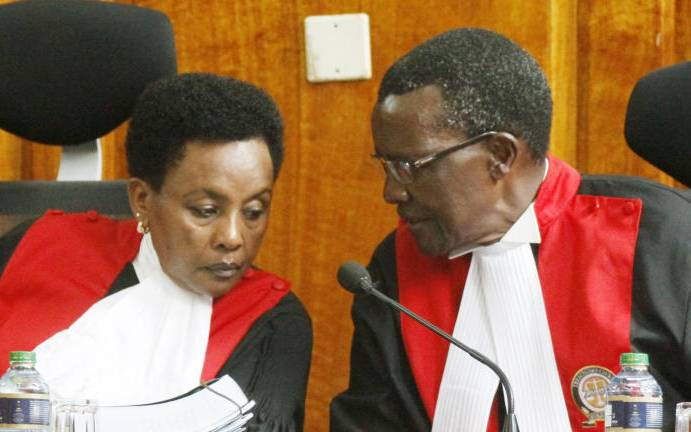×
The Standard e-Paper
Kenya’s Boldest Voice

Chief Justice David Maraga and Deputy Chief Justice Philomena Mwilu consult at the Supreme Court during a past hearing. [Boniface Okendo, Standard]
A Deputy Chief Justice Philomena Mwilu will serve for the same period as the Chief Justice or opt to retire before the tenure in a raft of changes proposed in the Building Bridges Initiative (BBI).